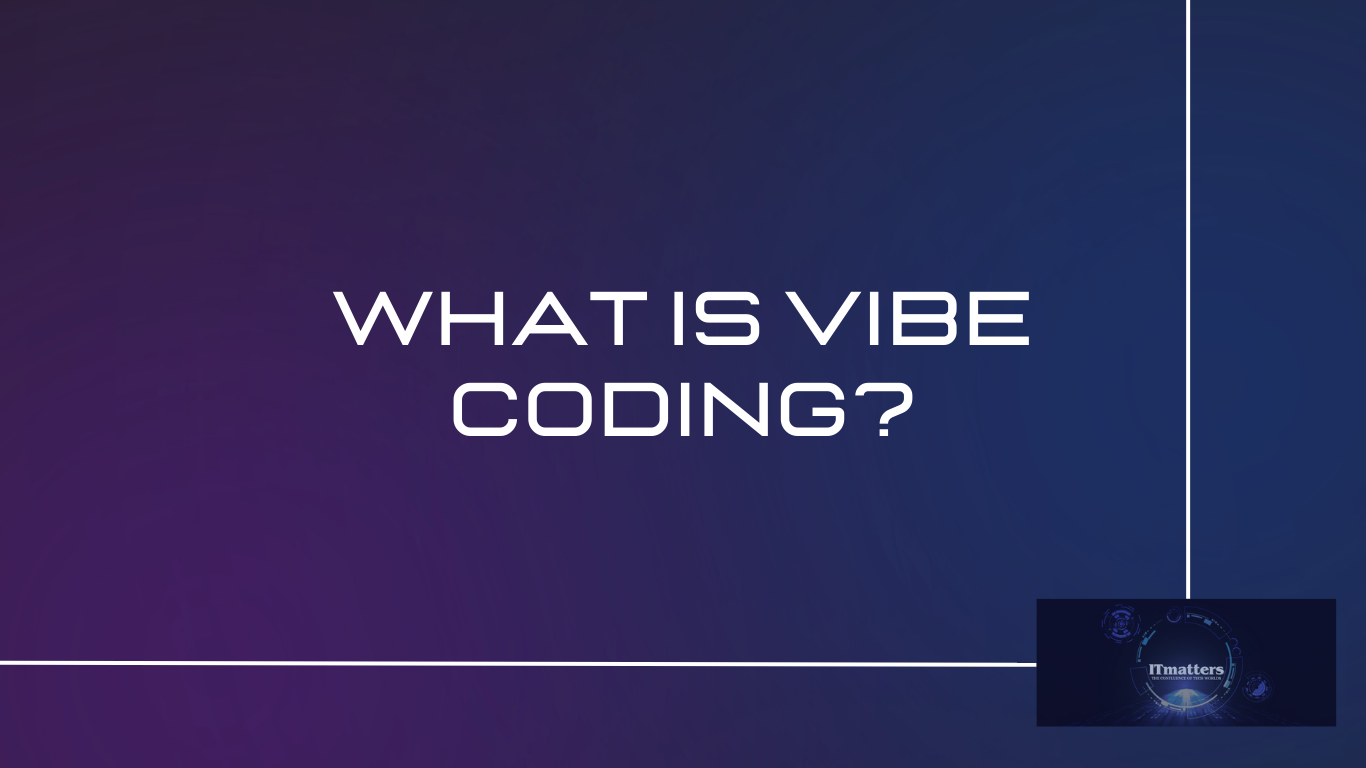A New Wave in Tech
Every now and then, a fresh term captures the spirit of a new tech trend. Right now, that term is vibe coding.
Coined by OpenAI co-founder Andrej Karpathy, vibe coding is all about intuition over precision. As Karpathy described it, it’s where you “see stuff, say stuff, run stuff, and copy-paste stuff — and it mostly works.”

Forget traditional coding discipline; vibe coding invites you to ride the wave of AI, unleashing creativity and prompting lead the way. And it’s catching on fast.
Vibe coding isn’t just a fun side hobby. It’s shaping real businesses. Karpathy, during a lecture at UC Berkeley, highlighted how weekend projects like GPT, Midjourney, and Hugging Face started small — and grew into industry-shaping giants. What begins with a vibe could easily scale into the next billion-dollar idea.
A New Era of Coding Tools
AI coding assistants like GitHub Copilot have been around for a while. But newer tools — Cursor, Replit, Lovable, Bolt, and Windsurf — are pushing vibe coding into the mainstream.
These platforms lower the barrier to entry, making it easier for beginners and hobbyists to build serious apps with minimal technical skills. Still, as Andreessen Horowitz pointed out, text-to-code tools have limitations—complex integrations remain tricky, and bugs can pile up.
Exploring the Vibe Coding Toolkit
With vibe coding heating up, let’s dive into the most exciting tools shaping this space:
Cursor: The Smart IDE
Cursor was the first breakout tool. Built for developers who love Visual Studio Code, it offers natural language code generation, a chatbot aware of your entire codebase, and deep debugging support.
But it’s not for everyone. Cursor can feel overwhelming to beginners and doesn’t offer built-in deployment features.
Replit: Coding and Deployment Made Easy
To fill those gaps, Replit is winning hearts.
Replit offers an end-to-end environment — from coding to deployment — and even allows integration with Cursor for the best of both worlds.
Recently, LinkedIn’s co-founder Reid Hoffman cloned LinkedIn itself using Replit with just a single prompt!

Lovable: Perfect for Beginners and Kids
If you have an idea but no coding experience, Lovable steps in.
Lovable turns text prompts into full-stack apps, supports frameworks like React and Tailwind, and even integrates with GitHub and Supabase.
It’s so easy that even kids are building apps — and skipping recess because they’re too deep into vibe coding!
However, the code isn’t editable, meaning you’ll need to prompt carefully to perfect your app.
Windsurf: A Power Tool for Serious Devs
For those wanting more muscle, Windsurf offers an upgraded Cursor-like experience.
Its AI partner, Cascade, can edit entire projects, run terminal commands, debug in real time, and deploy to platforms like Netlify.
Windsurf even supports JetBrains IDEs now, thanks to its latest update.
Bonus: Windsurf just announced free access to OpenAI’s GPT-4.1 for a week.
Google Firebase Studio: The Game-Changer
Not to be left behind, Google’s Firebase Studio entered the scene this year.
Built on Gemini, Firebase Studio merges app prototyping, coding, and deployment into a single browser-based platform.
With 60+ templates and AI agents helping you design UIs and APIs, it feels like Cursor, Lovable, Bolt, and Windsurf combined — only with Google muscle behind it.
Prompting: The Secret Skill Behind Vibe Coding
If there’s one takeaway from vibe coding, it’s this: Prompting is everything.
Prompt engineering has emerged as a legitimate profession. Guiding AI models effectively is now a must-have skill, with OpenAI’s Greg Brockman recently sharing new tips on how to prompt advanced models like their o-series.
As AI tools get smarter, those who master prompting will have a real edge.
Pick Your Vibe
Vibe coding is no longer an experiment. It’s fast becoming the new standard for software development. Whether you’re a student, entrepreneur, or seasoned developer, there’s now a tool that matches your style.








Leave a Reply